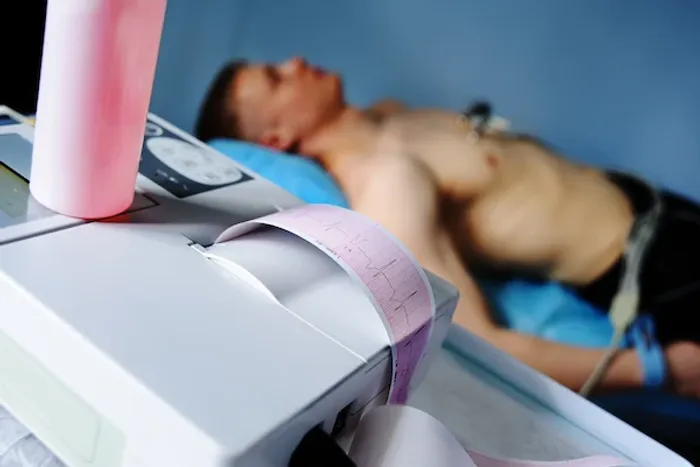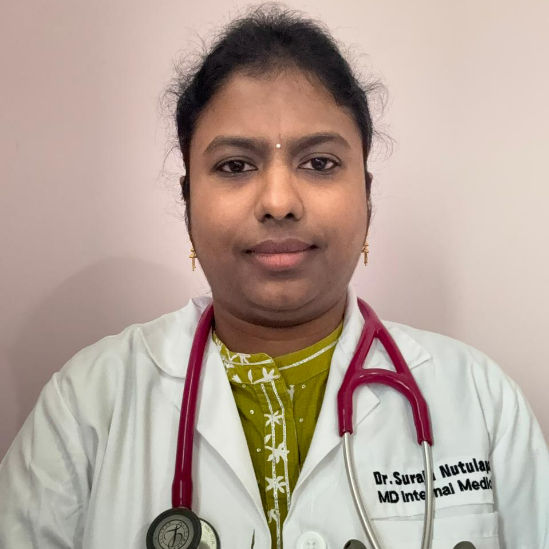Preparation Steps for Your ECG Test
Get ready for your ECG with our simple preparation guide. Learn what to do before, during, and after your electrocardiogram for accurate results and a stress-free experience.

Written by Dr. M L Ezhilarasan
Reviewed by Dr. Rohinipriyanka Pondugula MBBS
Last updated on 5th Aug, 2025

Preparation Steps for Your ECG Test
Introduction
An Electrocardiogram (ECG or EKG) is a quick, painless test that checks your heart’s electrical activity. It helps doctors detect irregular heartbeats, blocked arteries, or other heart-related issues. If your doctor has recommended an ECG, you might wonder how to prepare for it. Don’t worry—this guide will walk you through everything you need to know in simple terms.
What Is an ECG Test?
An ECG records the electrical signals of your heart through small, sticky electrodes placed on your chest, arms, and legs. It takes just a few minutes and is completely safe.
Why Is an ECG Done?
Your doctor may suggest an ECG if you experience:
- Chest pain
- Shortness of breath
- Dizziness or fatigue
- Irregular heartbeat (palpitations)
- A family history of heart disease
It’s also used for routine checkups before surgeries or to monitor heart conditions.
How to Prepare for Your ECG Test?
Preparing for an ECG is simple, but following these steps ensures accurate results:
1. Wear Comfortable Clothing
- Wear a loose, two piece outfit (like a shirt and pants) so that electrodes can be easily placed on your chest, arms, and legs.
- Avoid wearing a one piece dress or tight clothing.
2. Avoid Lotions or Oils
- Do not apply creams, lotions, or oils on your chest, arms, or legs before the test. These can interfere with the electrode contact.
3. Skip Caffeine & Heavy Meals
- Avoid caffeine (coffee, tea, energy drinks) for at least 2-3 hours before the test, as it may affect heart rate.
- A light meal is fine, but avoid a heavy meal right before the test.
4. Stay Relaxed
- Stress or anxiety can temporarily alter your heart rate. Try to stay calm before and during the test.
- Breathe normally and avoid talking or moving during the test.
5. Inform Your Doctor About Medications
- Some medications (like betablockers) can affect ECG results. Let your doctor know about any medicines you take.
- Do not stop any medication unless your doctor advises it.
6. Remove Metal Objects
- Take off jewelry, watches, or belts with metal parts, as they may interfere with the machine.
7. Shave If Needed
- If you have a lot of chest hair, the technician may need to shave small areas to place the electrodes properly.
Consult Top Physician For More Health Benefits
What Happens During the ECG?
The following events that take place are:
- You’ll lie down on a bed, and a technician will clean small areas of your skin.
- Electrodes (small sticky patches) will be placed on your chest, arms, and legs.
- The machine records your heart’s electrical activity for a few seconds.
- The test is completely painless—you won’t feel anything.
- Once done, the electrodes are removed, and you can resume normal activities.
After the ECG Test
- There are no side effects, and you can go home immediately.
- Your doctor will review the results and discuss them with you.
- If any abnormalities are found, further tests (like a stress test or echocardiogram) may be recommended.
Tips for Better Heart Health
While an ECG helps diagnose heart issues, maintaining a healthy lifestyle can prevent problems:
- Eat a balanced diet (fruits, vegetables, whole grains, lean proteins).
- Exercise regularly (walking, swimming, yoga).
- Avoid smoking & limit alcohol.
- Manage stress with meditation or deep breathing.
- Get regular checkups if you have risk factors like high blood pressure or diabetes.
When to Book an ECG?
If you experience:
- Unexplained chest pain
- Frequent dizziness or fainting
- Rapid or irregular heartbeat
Consider booking an ECG test at home or at a nearby Apollo 24|7 lab for convenience. Early detection can help prevent serious heart conditions.
Final Thoughts
An ECG is a simple, noninvasive test that gives valuable insights into your heart’s health. By following these preparation steps, you can ensure accurate results and a smooth experience. If you have any concerns, don’t hesitate to ask your doctor.
Consult Top Physician
Consult Top Physician

Dr. Syed Ismail Ali
General Practitioner
7 Years • MBBS
Hyderabad
Apollo 24|7 Clinic, Hyderabad

Dr D M Karthik
General Practitioner
4 Years • MBBS, Fellowship in Diabetes Mellitus, Advance certificate in Diabetes Mellitus, Derma Nutrition Certification
Visakhapatnam
Apollo 24|7 Clinic - Andhra Pradesh, Visakhapatnam

Dr. Mohammed Kamran
General Practitioner
5 Years • MBBS, FIDM
Nashik
Apollo 24|7 Clinic - Maharashtra, Nashik

Dr. Suraja Nutulapati
General Physician/ Internal Medicine Specialist
10 Years • MBBS, MD (Internal Medicine)
Hyderabad
Apollo 24|7 Clinic, Hyderabad
(875+ Patients)

Dr. D Bhanu Prakash
General Practitioner
10 Years • MBBS, AFIH, Advanced certificate in critical care medicine, Fellowship in critical care medicine
Hyderabad
Apollo 24|7 Clinic, Hyderabad
Consult Top Physician For More Health Benefits

Dr. Syed Ismail Ali
General Practitioner
7 Years • MBBS
Hyderabad
Apollo 24|7 Clinic, Hyderabad

Dr D M Karthik
General Practitioner
4 Years • MBBS, Fellowship in Diabetes Mellitus, Advance certificate in Diabetes Mellitus, Derma Nutrition Certification
Visakhapatnam
Apollo 24|7 Clinic - Andhra Pradesh, Visakhapatnam

Dr. Mohammed Kamran
General Practitioner
5 Years • MBBS, FIDM
Nashik
Apollo 24|7 Clinic - Maharashtra, Nashik

Dr. Suraja Nutulapati
General Physician/ Internal Medicine Specialist
10 Years • MBBS, MD (Internal Medicine)
Hyderabad
Apollo 24|7 Clinic, Hyderabad
(875+ Patients)

Dr. D Bhanu Prakash
General Practitioner
10 Years • MBBS, AFIH, Advanced certificate in critical care medicine, Fellowship in critical care medicine
Hyderabad
Apollo 24|7 Clinic, Hyderabad